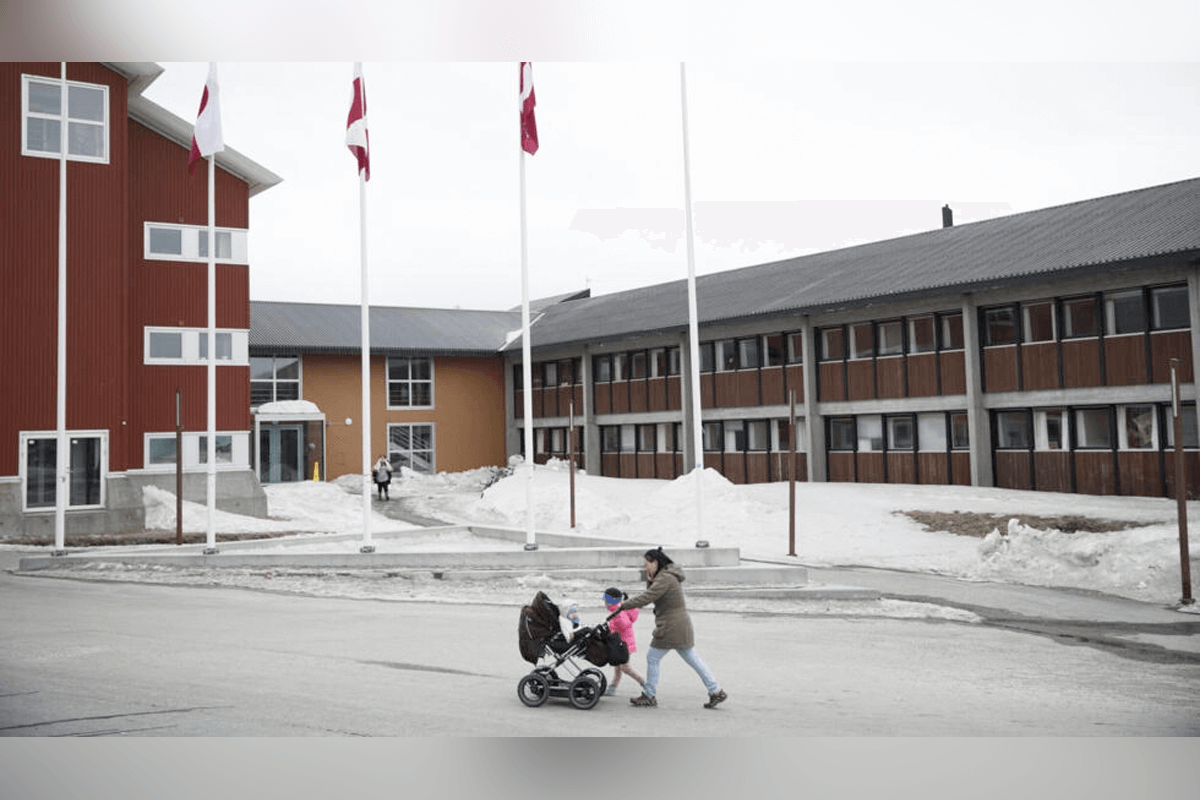
In the late 1960s, Denmark implemented a brutal contraceptive policy to limit births in its former colony of Greenland, forcing thousands of teenage girls to have IUDs inserted without their consent. After decades of repressing their trauma, the women are now speaking out and demanding reparation.
Naja Lyberth still has vivid memories of the ordeal she went through as a schoolgirl in Greenland, almost 50 years ago. “I was 13 or 14 at the time, I’m not sure. It was during our annual medical examination at school,” she recalls. “The pain was indescribable.”
Like thousands of fellow Greenlandic women, Lyberth was forced to have an intrauterine device (IUD), fitted when she was a teenager, without her consent or that of her parents. The 61-year-old psychologist can still picture the day she and her schoolmates from Maniitsoq, a small island in western Greenland, were forced to undergo the procedure in 1976.
“We were used to having medical check-ups every year. But this time, we were told to go to hospital.” …“I remember a white coat, a nurse and gynaecological equipment that seemed immense for my young body. Then the pain – as if thousands of knives were penetrating me. It’s the worst thing I’ve ever experienced. The doctor violated me, stole my virginity and forced me to put up with an IUD that was far too big for my body at the time.” For several decades, Lyberth repressed her trauma.
IUDs are normally effective for a period of up to ten years, after which they can cause complications such as infections and infertility. The ones forced upon young girls in Greenland were larger than modern devices.
“I had intense period pains, with enormous bleeding that forced me to stay at home,” she explains. It was only when she reached menopause, at around 50, that she realised the cause of her suffering. “I started having circulation problems and ovarian cysts. I was in so much pain that the doctors were considering removing my uterus,” she says. “That’s when it all came back to me.”
Six years ago, the psychologist, who works in Nuuk, the capital of Greenland, decided to tell her story in a long text published on Facebook, in which she asked whether other women had experienced the same.
“More than 200 people from all over Greenland replied to me, saying they had been through similar experiences,” she says. “That’s when I realised that I wasn’t alone and that we had to break the silence.”
Over the next five years, Lyberth struggled to get her message across in a country where violence against women remains a largely taboo subject. That was until 2022, when two Danish journalists came across her story in the local women’s magazine “Arnanut” and decided to investigate.
Lyberth’s teenage ordeal, the two female journalists discovered, was part of a vast birth control campaign implemented by Danish authorities in the Arctic territory in the late 1960s and 1970s.
A former colony, Greenland had become a Danish province in 1953. It did not gain autonomy until 1979. At the time, it had one of the highest birth rates in the world, and this carried a cost for Denmark, which had committed to paying Greenland subsidies based on demography.
The journalists released their findings in a podcast published on the website of Denmark’s public broadcaster DR entitled “The coil campaign”. Based on government archives, they came up with the staggering figure of 4,500 IUDs fitted over the period – for a population of 9,000 women of childbearing age.
“After the podcast, I received hundreds of messages from women, victim or not, who expressed their shock at the scale of what happened,” says Lyberth. “In Greenland, we all know women who were unable to have children. That’s when we understood why,” adds the mother of one, who finally had a child at 35 after years of unsuccessful attempts.
Since the DR report, many more women have spoken out about their suffering. Lyberth has set up a Facebook group where they can tell their stories and find mutual support. Victims describe the many complications they attribute to the IUDs, ranging from painful periods and infections to having their uterus removed. Some recount how they discovered they had a coil during a consultation with a gynaecologist because they couldn’t get pregnant.
‘We will not be silenced again’
In response to the scandal, the local authorities in Nuuk have offered psychological support to women who seek it. But all eyes are on Copenhagen.
In May 2023, the Danish government announced it was opening an inquiry to shed light on the contraceptive methods used in Greenland from the 1960s. The commission in charge is expected to release its findings in 2025.
The victims, however, refuse to wait any longer. On 2 October, Lyberth and 66 other women sent a letter to the Danish government demanding 300,000 kroner (around €40,000) each in compensation.
“We are getting older. The oldest of us were born in the 1940s and are now nearing 80. We want to act now,” insists Lyberth, who has not ruled out taking the case to court.
“This letter has also had a cathartic effect,” she adds. “We were able to give a voice to the young girls we once were, who couldn’t speak out at the time. I am part of a generation of traumatised women, and this is our way of saying we are no longer silent and will not be silenced again.”
This article is a translation of the original in French.
SOURCE: France24, by Cyrielle Cabot. 25 November 2023 ; PHOTO: © Christian Klindt Soelbeck, AFP, 2018



